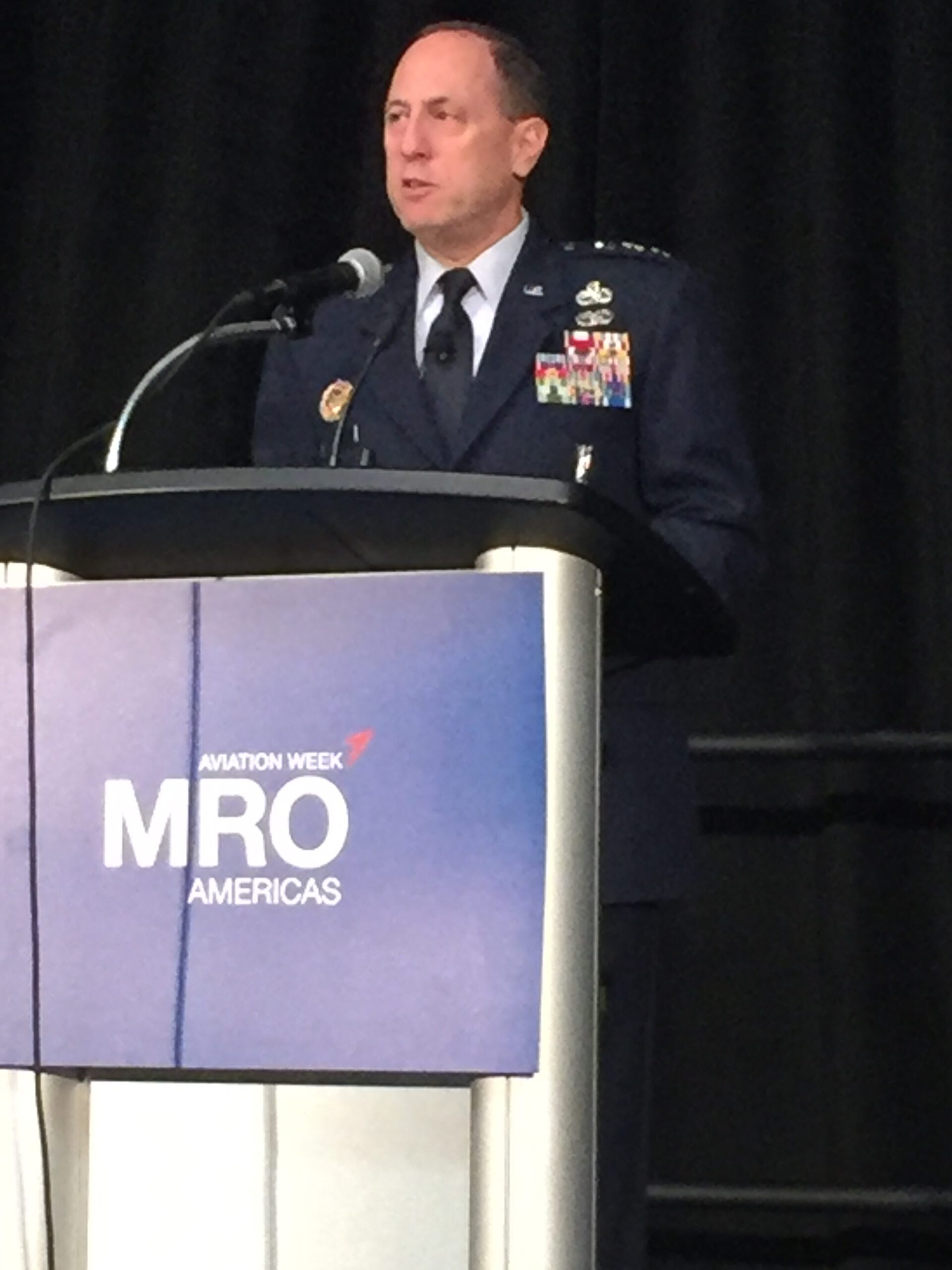MRO Americas, Orlando, FL: Data science – “the ones and zeroes” – will be the key discipline for maintenance and support services of the future, whether in the military or civil arena, according to Lt. Gen. Lee Levy, Commander of the US Air Force Sustainment Center (AFSC), Air Force Material Command (AFMC) is his Military Keynote speech to MRO Americas.
Within the AFSC, there are eight organisations with 43,000 personnel operating as one team from 24 geographic locations. To enable combat air power those organisations must deal with a variety of tasks, including Depot Maintenance and Modifications. This is where the AFSC demonstrates that it is a globally integrated MRO organisation, noted Levy.
“We also do software – the ones and zeroes – and are currently hiring more data specialists than qualified maintenance technicians,” he reported.
As with civil aviation maintenance, the military has to move parts around the world. “With Logistics Command and Control, we have perhaps not kept pace with developments. We’ve not been able to do this as elegantly as we’d like around the globe. Civil aviation best practices have helped,” Levy admitted. “We have to be prepared to operate in the air, in space, in cyber, on land and in maritime. And our C & C (command and control) is not where I’d like it to be.
“One of the things that drives us in the logistics ‘Kill Chain’ is what I term big E (Effectiveness) versus little e (efficiency). Our shareholders are the [US] public and when we’re called upon they expect us to do one thing – win. That’s where a decision has to be made to do something that may not be efficient, but will be effective,” he added.
Levy noted that all this is done with a lot of old technology. “The average fleet age of the Air Force is 27 years old, which is pretty geriatric. There are many MRO challenges that come along with that,” he declared.
Although many of the older aircraft are often considered less sophisticated than modern fighters, Levy again underlined the need for data specialists – but actually to work on the former. “The KC-46 (military version of the Boeing 767) has more lines of software code than an F-35 fighter,” he pointed out. “Do we have enough STEM (science, technology, engineering and mathematics) graduates coming through? I don’t think so and an inability to create STEM graduates is an issue for the whole country.”
However, the Lieutenant General admitted that the supply chain risk “is what keeps me awake at night”. The military cannot allow that to be the weakest link as it reduces “the big E”, he observed.
Levy has had to deal with there being no proper appropriation for eight years. His fear is that if he “got my money” and found he had six months to spend 12 months’ worth of money, then the suppliers might not be in a position to fulfil his requirements. Moreover if the suppliers had to drop other contracts they may well increase their prices – “and sell me a $10 widget for $14”.
Such an outcome, Levy remarked, would make him look like a poor manager of the budget and thus someone who wasted taxpayers’ money.
Military and civil MRO business are “remarkably the same,” Levy concluded. “We each have an ageing workforce and fewer STEM graduates available to us. We must therefore continue to find mutually beneficial ways to work together.”
By Bernie Baldwin, editorial contributor
